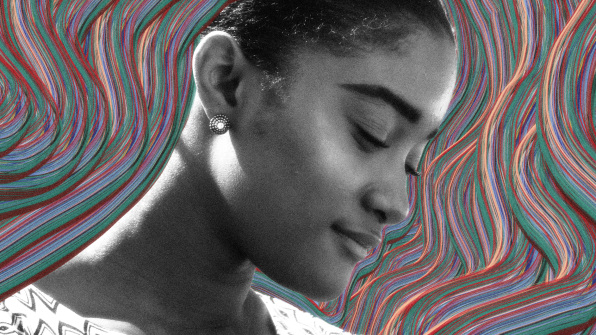
“The reason it works is because empathizing, or thinking about someone in an emotional way, leads to more cognitive flexibility,” says professor Kelly Herd.
If you’re designing a new product or marketing campaign, what’s the better source of creativity: Your brain or your heart? That’s a question posed by the University of Connecticut and the University of Illinois in a new study published in the Journal of Consumer Research.
Their conclusion? It’s your heart. It’s more important to think about how your audience or users feel than how they might act. And once you know that, you can actually change your own thinking to be more creative.
“A lot of people are told to be very objective. ‘You’re a professional. Think about this in an objective way. Don’t get caught up in emotions,’” says Kelly Herd, marketing professor at the University of Connecticut. “But what we find is that [the empathetic] process actually leads to more creativity.”

Over a series of five separate trials, Herd and co-author Ravi Mehta asked everyday people to conceptualize new products, like toys for children, grocery carts for the elderly, and new flavors of potato chips for pregnant women. Crucially, half of participants were instructed to think about these problems cognitively–to consider logical solutions. The other half of participants were instructed to close their eyes for 30 seconds and empathize with the end user, to try to feel what they were going through, before beginning the design.Across trials and tasks, the empathetic designers were found to be measurably the most creative (the results were judged by various independent panels), and crucially, their ideas were no less practical than the logical group. In other words, their creative ideas didn’t come at the expense of realism.
For instance, when prompted to come up with potato chip flavors for pregnant women, the cognitive thinkers came up with flavors like “salt” and “BBQ.” But the empathetic thinkers thought up with flavors like pickles and ice cream, sushi with wasabi, and something called “margarita for mom.” Sushi and margaritas are not just surprising choices, they’re both foods that most pregnant women abstain from for nine months.

But why is empathy such an effective creative tool? Is it that when you begin to think about someone’s feelings you just care about them more and work harder? No, says Herd. In fact, the study controlled for that possibility.
“The reason it works is because empathizing, or thinking about someone in an emotional way, leads to more cognitive flexibility,” says Herd. “Cognitive flexibility comes in when thinking about new ideas and new pieces of information as you brainstorm.” Basically, that mental agility helps you consider many possibilities and iterate on ideas more fluidly.
“Empathy actually just makes you better and more cognitively efficient. And that to me is way cool,” says Herd. “If you want to motivate people to be more creative, there’s lots of reach on that. We’re saying you don’t spend any more time or more energy; just do it better.”
So how can you leverage empathy to be more creative? Herd recommends a simple practice. Just spend 30 seconds or a minute thinking about someone else and how they must feel–that can be anyone from the user for your next product, to a relative for whom you need to buy a Christmas gift.
“I think it can actually be pretty quick,” says Herd. “It’s not like you need to sit back and think about this for an hour to get that benefit. Just taking a moment can shift your thinking.”
–
This article first appeared in www.fastcompany.com
Guest Author: Mark Wilson is a senior writer at Fast Company who has written about design, technology, and culture for almost 15 years. His work has appeared at Gizmodo, Kotaku, PopMech, PopSci, Esquire, American Photo and Lucky Peach.
